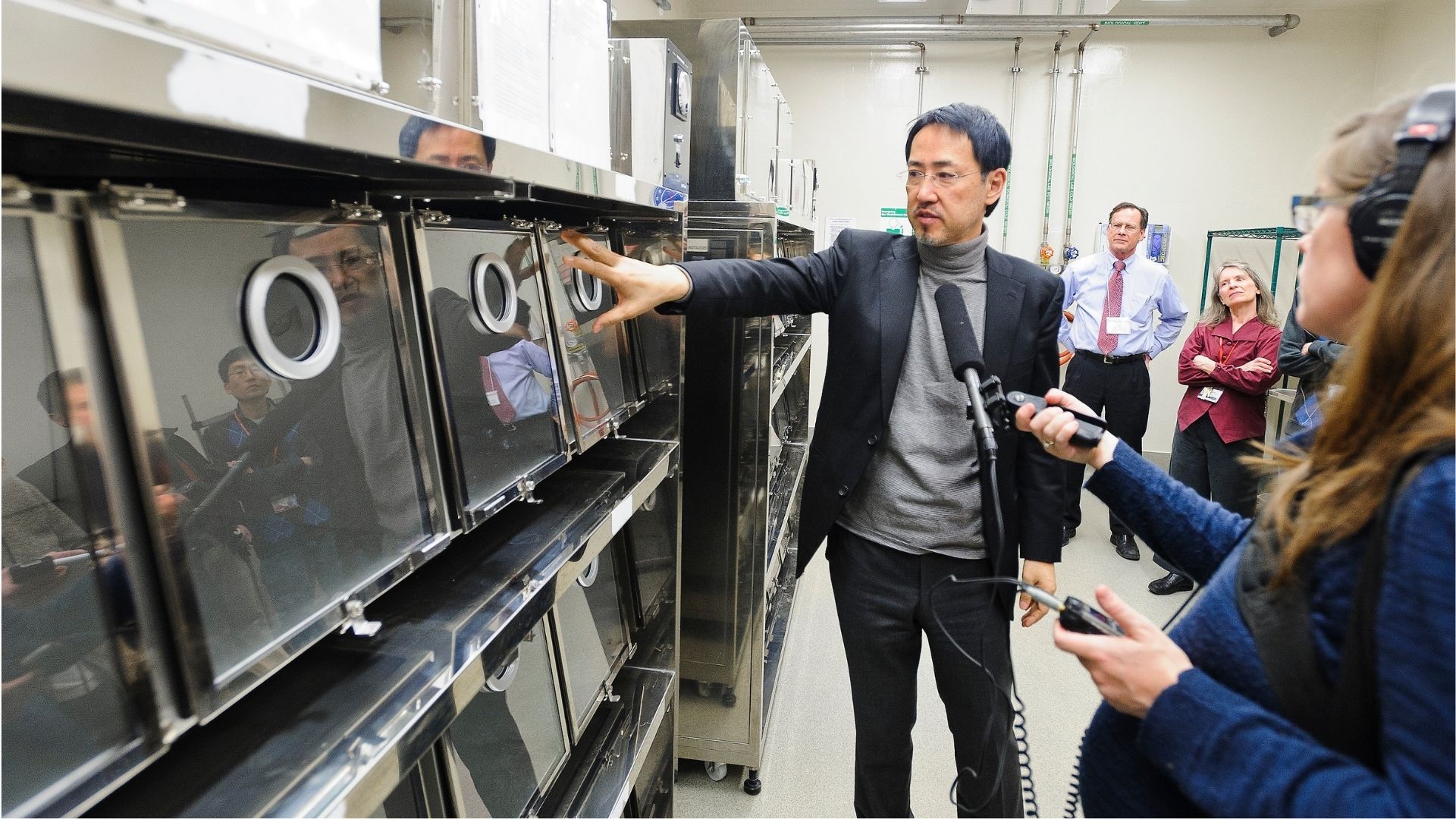An international collaboration between virologists at the University of Wisconsin-Madison and vaccine companies FluGen and Bharat Biotech has started the testing of CoroFlu, a potential vaccine against COVID-19.
July 2020

Yoshihiro Kawaoka, co-founder of FluGen. BRYCE RICHTER/UW-Madison
An international research and biotech collaboration has begun the development and testing of CoroFlu, a potential vaccine against coronavirus. The project is an international partnership between the virologists at the University of Wisconsin (UW)-Madison and the vaccine companies FluGen and Bharat Biotech. FluGen is based in Wisconsin, Bharat Biotech is based in Hyderabad.
CoroFlu will build on the blueprint of FluGen’s successful flu vaccine, M2SR. Invented by the university virologists and FluGen co-founders Yoshihiro Kawaoka and Gabriele Neumann, M2SR is a self-limiting version of the influenza virus that induces an immune response against the flu. Kawaoka’s lab plans to insert gene sequences from COVID-19 into M2SR, creating a new vaccine that would aim to induce immunity against the coronavirus. The M2SR vaccine works through multiple immune systems and convinces the body it has been infected, triggering a robust immune response while not displaying flu symptoms.
“We are going to modify M2SR by adding part of the coding region for the coronavirus spike protein that the virus uses to latch onto cells and begin infection,” says Neumann. “CoroFlu will also express the influenza virus hemagglutinin protein, so we should get immune responses to both coronavirus and influenza.”
“Single replication means the virus can enter the cell, but can’t leave,” adds Paul Radspinner, FluGen co-founder, president and chief executive officer. “So, in essence, it tricks the body into thinking it’s infected with flu, which triggers a full immune response. But since it can’t replicate further, you don’t get sick.”
Research on the CoroFlu vaccine concept and testing on laboratory animal subjects at UW-Madison is expected to take about three to six months. Project partner Bharat Biotech will begin production scale-up for testing in human subjects. Within this current timeline, CoroFlu could potentially be in human clinical trials by the fall of 2020. “Our core mission is to apply innovative technologies to address the health care concerns of the developing world and to provide them with affordable, high quality vaccines and therapeutics,” says Raches Ella, Bharat Biotech’s head of business development. “We will fervently work toward the successful development of an efficacious COVID-19 vaccine.”
CoroFlu, like M2SR, will be delivered via intranasal administration. Taking the vaccine through the nasal passages mimics the natural route of infection by coronavirus and activates the human immune system’s response in a similar manner. The team’s previous research found intranasal delivery to be more effective in inducing multiple types of immune responses than the intramuscular shots that deliver most common flu vaccines.
FluGen’s M2SR vaccine includes the technology developed through the Wisconsin Alumni Research Foundation (WARF), which manages patents for UW-Madison. “To confront a global challenge, this is collaborative discovery at its best,” says Erik Iverson, chief executive officer of WARF. “The partners in this endeavor are moving forward with a sense of urgency and integrity incumbent upon us as scientists and world citizens.”
FluGen will share its existing manufacturing processes with Bharat Biotech, enabling the company to increase production and produce the vaccine for clinical trials. Bharat Biotech has more than 100 global patents, a portfolio of 16 products, registrations in more than 70 countries and WHO pre-qualifications, including a previous vaccine developed against the H1N1 virus that caused the 2009 swine flu pandemic. Bharat Biotech plans to manufacture the vaccine, conduct clinical trials and prepare to produce the vaccine for global distribution. The aim is to provide almost 300 million doses per year.
Jason Chiang is a freelance writer based in Silver Lake, Los Angeles.
COMMENTS